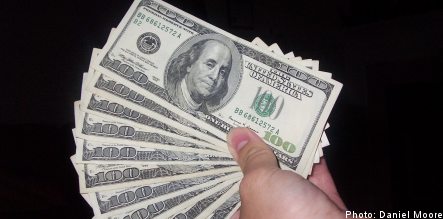Throughout the financial crisis, the Riksbank has loaned tens of billions of kronor worth of foreign currency to Swedish banks in order to help ensure their liquidity.
But now the Riksbank wants to replenish its foreign currency reserves in case further liquidity assistance is needed, the Riksbank said in a statement on Wednesday.
In addition to making a number of US dollar loans to Swedish banks to maintain liquidity during the ongoing financial crisis, the Riksbank has also entered into swap agreements with the central banks of Iceland, Estonia and Latvia.
“We still need to be prepared for the eventuality that the financial crisis may be both severe and prolonged. This is why we need to strengthen the foreign currency reserve. This is part of our work to safeguard financial stability,” said Riksbank governor Stefan Ingves in a statement.
The Riksbank said it plans borrow the funds from the Swedish National Debt Office (Riksgälden), adding that the boosting of its foreign currency reserves is “temporary” and will be phased out along with other measures currently in place to mitigate the effects of the financial crisis.
But Johan Javéus, head currency strategist with SEB Merchant Banking, questioned how great an effect the move would have.
“The liquidity effects will be negligible,” Javéus told the Direkt news agency.
“We’re talking about interest payments on borrowing and that’s not big enough amount to affect the krona, especially in the short-term.
He added that Riksbank’s actions could add to concerns that the bank knows about worrying developments in the Baltics of which the general public is not yet aware.
However, Javéus theorized that speculation over what the Riksbank may know could put pressure on the krona, although currency movements thus far have been marginal.
Shortly after 4pm on Wednesday, the krona was trading at 7.65 kronor to the dollar, down about 1.5 percent from the opening level of 7.55 kronor per dollar.



 Please whitelist us to continue reading.
Please whitelist us to continue reading.
Member comments